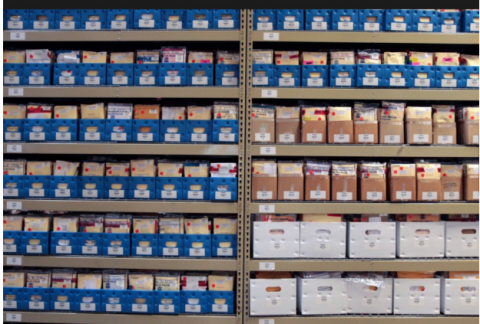Six months after three counties in Oregon began shipping hundreds of untested DNA samples from alleged victims of sexual assault to a Utah lab, the first results are in: Five match known offenders in a criminal database.
October 3, 2016
Six months after three counties in Oregon began shipping hundreds of untested DNA samples from alleged victims of sexual assault to a Utah lab, the first results are in: Five match known offenders in a criminal database.
Prosecutors are reviewing the cases to determine if the new DNA information could lead to charges and arrests for rape or other sex crimes.
Multnomah, Marion and Lane counties received a $1.9 million grant to test the previously shelved evidence — blood, semen, saliva and hair — collected in sexual assault kits.
Some of the kits have sat for more than a decade — in part because of inattention, delays at the Oregon State Police crime lab and a shortage of money for testing.
The grant is expected to cover the testing of about 2,600 kits from the three counties. Of the total, 1,428 have been sent to the Sorenson Forensics lab, based in Salt Lake City. About a third of those have been tested.
In some cases, the tests found only DNA from alleged victims and no DNA from possible suspects, or the DNA sample was of such poor quality that no suspect could be identified.
But lab technicians have found quality, foreign DNA samples in 164 kits. That doesn’t necessarily mean that the foreign DNA belongs to a suspect — it could, for example, belong to someone that a victim had consensual sex with before being attacked.
Oregon officials are reviewing the 164 cases to decide whether to enter the DNA into local and national databases for a match. The databases consist of DNA from defendants convicted of crimes — or in some cases, people who’ve been arrested.
As of Monday, police have entered 24 kits into the databases and found five matches: three from Portland cases and two from Eugene cases, said Susan Hormann, who is working out of the Multnomah County District Attorney’s Office and tracking the numbers statewide.
Multnomah County Deputy District Attorney Amity Girt said no cases have been presented to grand jury in Multnomah County yet because her office must first thoroughly review the circumstances of each before deciding whether to go forward. That includes reading old police reports and deciding where to do further investigation.
Prosecutors also want to talk to the alleged victims first.
In some cases, Girt expects that her office will find that a prosecution doesn’t need to proceed because there already has been one: The case moved forward based on a victim’s testimony and witness accounts, and a defendant was convicted without DNA evidence.
Although Multnomah, Marion and Lane counties are getting a big boost with grant money, the effort to send untested kits from all parts of the state to labs gained steam during the 2016 legislative session.
Lawmakers passed what’s been dubbed “Melissa’s Bill,” which speeds up the process of police departments sending in kits. The new law also allows the state crime lab to prioritize kits.
The bill was named after 14-year-old Melissa Bittler, the daughter of Mary and Tom Bittler. The girl was on her way to school in 2001 when she was grabbed by a stranger, raped and murdered in a neighbor’s Northeast Portland backyard.
DNA samples collected in sexual assault kits from at least two other young teens who were attacked by the same rapist four years earlier sat collecting dust at the Portland Police Bureau. After Bittler died, detectives who recognized similarities uncovered the kits and sent them for testing. They came back a match to Bittler’s killer.
— Aimee Green


